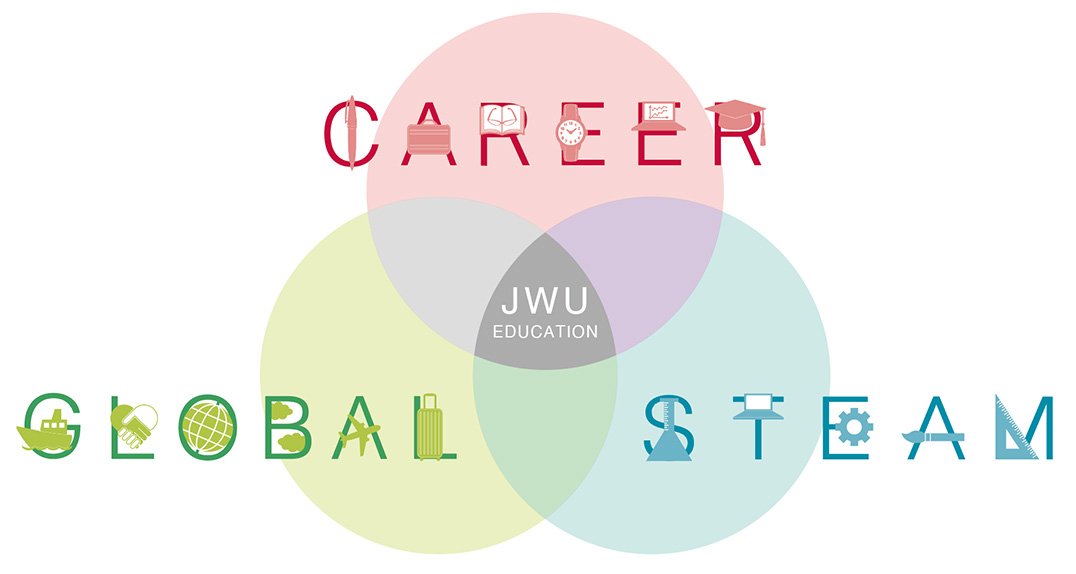Japan Women's University provides integrated education from its kindergarten through to the University. The origins of this date back to the affiliated Girls' High School (which later became the Junior High School affiliated with JWU and Senior High School affiliated with JWU) established at the same time as the University in 1901, and the Homei Kindergarten affiliated with JWU and the Homei Elementary School affiliated with JWU, which were established four years later in 1906.The school's founder Jinzo Naruse advocated the necessity of an educational system running from kindergarten to university, and made a reality of this vision before any other university.
Integrated education

The educational philosophy of the University is to nurture each infant, child, pupil and student so that they understand themselves, and while maintaining a harmonious humanity and sense of social responsibility, can make contributions to the world at large. In order to realize this philosophy, the University cites the three pillars of “global education,” “STEAM education,” and “career education.” In the so-called “100-year life era,” and in a society said to be full of uncertainties, the University aims to foster women who can bring out their full potential, proactively participate in society and create their own lives.
Education policy of the affiliated schools
Japan Women's University provides students with a fully integrated program of lifelong learning, taking them from infancy through to adulthood. Whatever the stage of her educational journey, whether at the beginning with the JWU-affiliated Homei Kindergarten, or at the end, researching in one of the University's graduate schools, students share the same founding principles: spontaneity and creativity, service to society, and strong personal convictions.
With more than 100 years of history, the University's philosophy of integrated education transcends generations, brings harmony to the lives of children and young people, and nurtures their individuality. The desire to contribute to world peace, human welfare, and mutual understanding, continues to thrive at the University.
- University information&Characteristics of learning
- Educational policy of Senior High School affiliated with J.W.U.
- Educational policy of Junior High School affiliated with J.W.U.
- Educational policy of Homei Elementary School affiliated with J.W.U.
- Educational policy of Homei Kindergarten affiliated with J.W.U.

